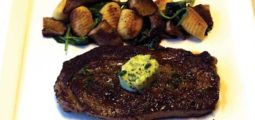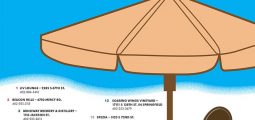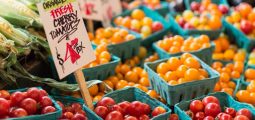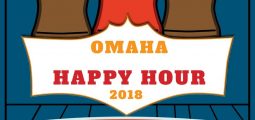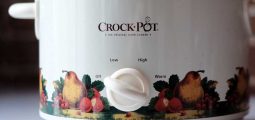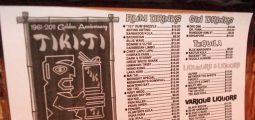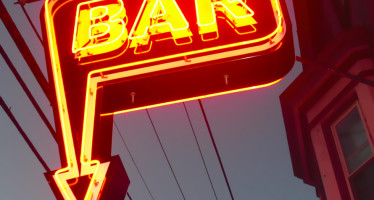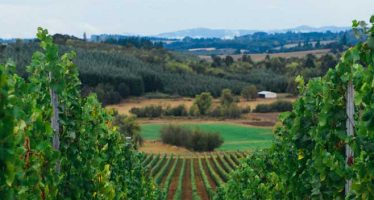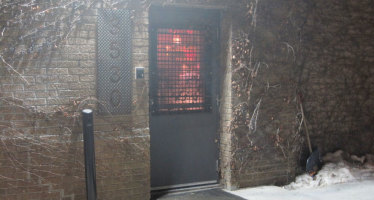Avoiding the High Cost of (Wine) Education
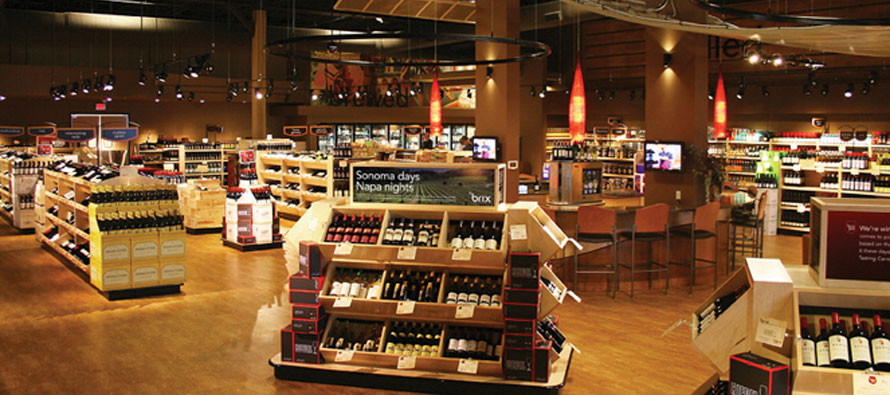
Anyone who has ever sat in gridlock on the 405, or even just hit I-80 at the wrong time of day, has in the very least considered the merits of becoming a small airplane pilot. When I investigated this possibility however, a friend of mine who in fact is such a pilot estimated that his training had taken seven years, over 1,500 flight hours and cost around $45K. So as much as I hate Dodge Street at 5:30, if the alternative costs $45K, I’m just going to have to get used to it.
And so it can be with wine as well. A well-credentialed friend of mine who runs a local wine bar estimates that in the past three years alone, he’s spent well over $10,000 honing his palate, tasting and learning his way into the industry, often drinking juice that’s as old or older than he is. But what about the rest of us? What about the layperson (or lay-wine writer) who wants to learn about wine, but can no more afford to become a sommelier than he can afford to become a pilot? Are we destined to a lifetime of watching Somm and drinking Two Buck-Chuck, wishing like hell that we too might finally taste that “fresh cut garden hose” of cinematic lore?
Actually, there is another way. In 2015, I read around fifteen books on various wine-related topics, but few of them have lent me anything of applicable value when I sit down to do a tasting, and fewer still bring me the joy of holding a glass of excellent wine up to my lips. Over time I’ve found that there’s really no substitute for tasting wine if you want to learn about the stuff, but tasting doesn’t necessarily have to break the bank. For the aspiring aficionado of viticulture, there is a good alternative to spending most of your paycheck on bottles and glasses of wine, a way to taste relatively large amounts of quality juice without waking up in the morning with nothing but a whanging headache and buyer’s remorse to show for it.
In the Omaha area, a number of places offer regular free wine tastings and, at the risk of overcrowding some of my favorite weekend stops, I’m going to list them here. However, before I do, a note on etiquette that has very little to do with wine: The places that offer tastings of their wines are not doing so out of the goodness of their heart nor their passion for spreading the gospel of fermented grape juice. They, like all businesses, are in this to make money. If you attend any of the paid tastings in town – and there are plenty of those – I think it’s perfectly reasonable to walk in, pay your fee, sip the juice and bid adieu without a second thought.
If you’re attending a free tasting, however, remember that these places have opened up their product to you in the hopes you’ll like something enough to buy it. Admittedly, I don’t buy a bottle at every free tasting I attend, but I often do, and I never leave without buying at least a glass or something to eat. So, if you find yourself hitting up these free tastings with me and you don’t want to put the place out of business, please consider making some kind of purchase from the vender.
All of the regular tastings I know about are on weekends, so out of some innate sense of fairness, I’m going to list these in the order in which they typically occur. My first stop after work on Friday evenings is often Trader Joe’s. On most Friday afternoons, TJ’s predictably uncorks four bottles: two red and two white, and unfortunately, they serve them in those same little plastic shot glasses that you were given pink fluoride in when you were in kindergarten. The wines served are generally in the $6-$12 range, and more often than not are wines sold exclusively in Trader Joe’s stores.
The last time I visited, they were sampling a young Meritage (pronounced merit-edge) and a really nice Cab Sauv for reds, and a Chardonnay and a sparkling for the whites. While the wines you try at Trader Joe’s are unlikely to surface on the menu of your favorite restaurant, they tend to taste a lot of classic varietals, making it a pragmatic way to expose your palate to a wide variety. Best of all, Trader Joe’s sells relatively good wine at relatively low prices, making it an easy place to pick up a case or two of wine. You know, for future reference.
My next Friday night stop occurs only sporadically, and is sometimes replaced by a Saturday afternoon tasting in the same location. In order to find out when and what they’re tasting, I recommend you sign up to get on the mailing list at Brix. With two locations (I typically go to the one in Midtown though they do have a Village Point location convenient for those who live in East Lincoln) it’s easy to hit up on the way home from work, or as a destination later in the evening. Often, the Friday night tasting at Brix runs from 6-8pm, and tastings range greatly in what they offer.
One night they tasted Silver Oak Cabernet Sauvignon, which runs around $70-$80/bottle retail. More recently they were tasting the latest vintage of the cult wine “The Prisoner” which runs around $50 in price. Other nights, they’ve tasted ten different Zinfandels, half a dozen cabs – whatever they feel like offering that night. It’s never disappointing and it’s often a chance to try some really high-end stuff. An additional perk is that, at least when I’ve been there, they’ve been tasting their wines out of Riedel crystal glassware. If you’re learning about wine, a Brix tasting is a great stop as they are often either offering a range within the same varietal, or something you might not normally splurge on. They also have those “evil vending machines” that disperse wine by the ounce. With half off every Monday, that’s another good way to taste a lot of wine on a budget.
The other three tastings I like to hit up all start at noon on Saturday, which can be something of an inconvenience to rabid Husker fans like myself, yet makes perfect sense the other 40 weeks out of the year. My first stop is typically The Winery, one of the oldest and most established wine shops in Omaha. I like to arrive early, around 11:30, and eat a late breakfast or early lunch in their incredible deli. I don’t like going into a day of tasting on an empty stomach and the food is truly excellent (try the soup du jour, the Ruben, or a breakfast sandwich on a toasted croissant).
A handful of friendly regulars are likely to join you there and the ambiance is a relaxed one – perfect for casual tasting. On a typical Saturday, The Winery opens four wines; two red and two white, and they serve them in glass glasses, neither crystal nor plastic. The best part about this tasting is that the owners, veritable viticultural encyclopedias unto themselves, are always present, have selected the wines and, if not swamped, are happy to discuss them with you. Wines tasted range in cost from $10-$50+ per bottle and they range just as widely in varietal and location, so it’s a great place to add to your knowledge of wine. If you sign up to get their emails, you’ll soon learn about other free tastings they sometimes hold with winemakers in addition to their list of sales, which is a great place to find a bargain bottle.
More recently, I was clued into Whole Foods as another free tasting that is definitely worth hitting up. In late October, I visited one afternoon, only to find them tasting sixteen different wines. I had to do a lot of taste-and-spit (I drove there from The Winery) but I found it an excellent opportunity to taste a wide variety of varietals and styles made all around the world. Their staff were super friendly, the bottles ranged from around $10-$20 in price, all of it served in a seemingly endless wave of plastic shot glasses, and the crowd that gathered to taste made for some pleasant conversation as well. I’ve only hit this one up a few times, but I’d be remiss if I left it off my list of recommendations.
The final stop on your Saturday tasting tour – or possibly the first depending on how you work it — should be Vino Mas. Though admittedly I haven’t been there in quite some time, their web page (vinomas.com) confirms for me that they’re still doing free Saturday tastings. Located on 144th street, my wife and I were members of their monthly wine club before we moved twenty miles in the opposite direction, but I still try to swing back by when time permits. For the rabid Husker fan, they have televisions, so if you’re trying to figure out how to fit wine tasting in on a Saturday in the fall, this might be among your best options. Helpful and knowledgeable, the staff will be happy to guide you through your tasting on a Saturday afternoon. The wines tasted vary greatly, but they are always good. Located right next to Blue Sushi, my wife and I would often grab lunch before or after a tasting.
After so many years of “racing to the top” and “leaving no child behind,” it’s not unreasonable to think that we may have grown accustomed to the utter devaluation of education in our society. Yet those who seek knowledge because they truly desire it, and not because they’re being force-fed or tested over it may nevertheless find that it comes at quite a high price.
With luck, this primer on complimentary tastings has helped to reduce that expense for budding local oenophiles. No doubt there are other free tastings in our metro area that I have yet to encounter, and if you know of one, by all means please shoot me an email. Those listed above are the ones that I frequent, and a good place to start for someone who is transitioning into the world of wine from, say, the world of Busch Light, as was the case for me not long ago. Wherever you’re at in your knowledge of bottled poetry, the more you taste, the more you’ll learn to appreciate it, and knowing that you don’t have to take out a second mortgage to get that education may be the sweetest drink of all.

Mark Gudgel
Dr. Mark Gudgel is a wine writer and educator who holds credentials through the Wine & Spirit Education Trust (WSET) and is working towards becoming a Master of Wine. His interest in wine was sparked on his honeymoon to Napa and Sonoma. Gudgel and his wife, Sonja, have co-authored several articles as well as a book on the wineries of Nebraska, to be released in the spring of 2017. Gudgel is a regular contributor to Food & Spirits Magazine and American Winery Guide, as well as the blog he maintains with his wife, www.itheewine.com. Mark and Sonja live in Omaha with their children and their dog.
Related Articles
Babysitting After Midnight: Hitting on Your Bartender 101
Welcome, dear reader, to the newest column in Food & Spirits Magazine, Babysitting After Midnight. You might ask, “Why is
From the Willamette Valley to Omaha: Illahe Vineyards
In 1983, Lowell Ford got his hands dirty planting grapes in the dirt of what would ultimately become Illahe Vineyards
Bar Chat: An Interview with Steve Jamrozy of Side Door Lounge
Steve Jamrozy, the creative force behind the Flatiron Café since its inception in 1995, has earned a reputation for doing
2 comments
Write a commentOnly registered users can comment.


